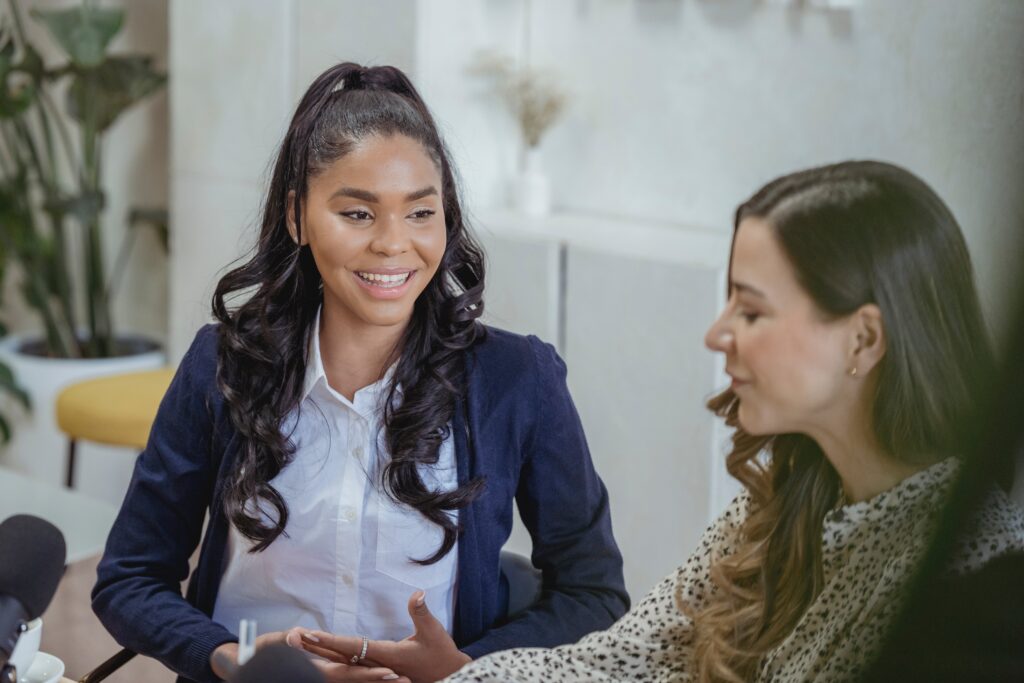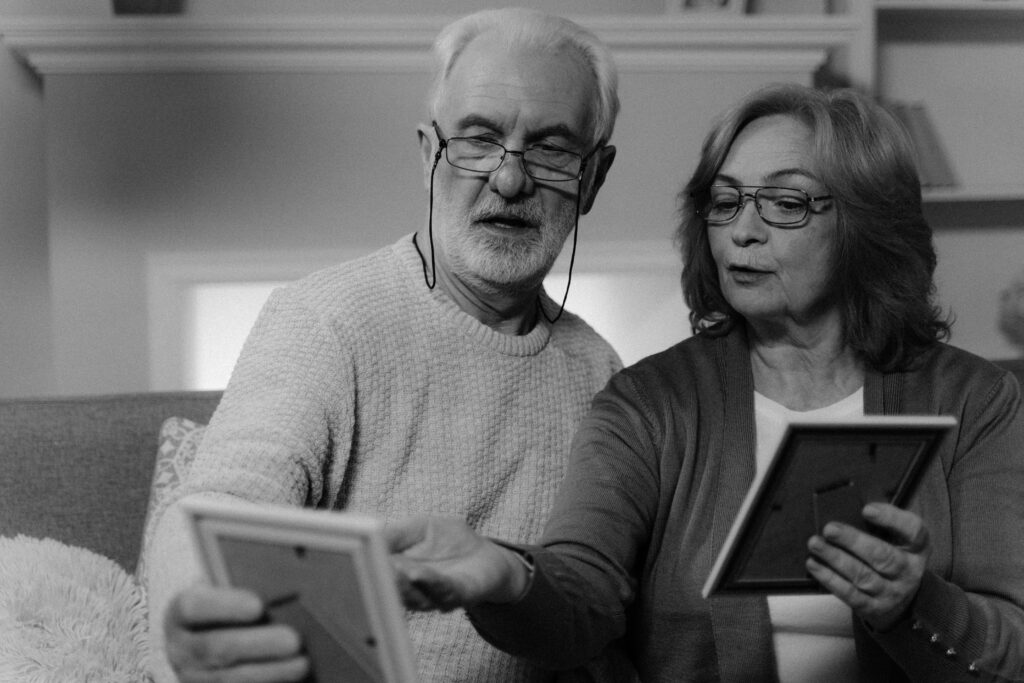Do they like you for who you are?

Sometimes it’s hard to tell whether or not a person likes us, especially when our nerves get in the way and we start seeing everything as a sign.
Don’t worry, here at Psych2Go we have compiled a short list of 5 things to look out for to determine whether or not that person likes you for who you are. This list is not comprehensive by any means, it only contains the most common signs that explain when someone is attracted to you.
This article is not intended to replace any professional advice, if you are in need of help or more detailed information please contact a relationship or body language expert near you or online.
Mirroring

Mirroring is synchronized movements we do when we like someone or when we are with friends or family. Imagine Health, a psychology service website, says that this is called “limbic synchrony” and it happens due to the fact that when we used to live in tribes “being in sync with the members of your group was vital for survival”.
Some of the things that can happen when we are mirroring are:
- Copying another’s body language
- Copying someone’s speech, tone, vibration, pitch, volume, etc.
- Using the same words or speech patterns as someone else
- Copying someone’s facial expressions
- Copying someone’s facial movements when you laugh or yawn
- Mimicking seated or standing postures
- Coordinated walking
“Mirroring body language is a non-verbal way to show empathy”, states Imagine Health, “It signals that we are connected to that person in some way”.
Mirroring happens due to nerve cells in the brain called mirror neurons that unconsciously make you mimic another person’s movements when you like or trust them.
When you already trust someone, like family or friends, mirroring takes a slightly different meaning than when you like someone.
“In these cases (with family or friends) imitating someone is a sign of comfort and trust”, says Imagine Health, “The whole point of mirroring is that it’s a way to better understand others and connect with them. Being able to mirror someone is the same as being able to listen to someone”.
See if you can notice people mirroring each other the next time you go out.
Space

Another type of body language that we need to look out for when liking someone or when we want to know if someone likes us is space. Typically, when we like someone we tend to move closer to them or face them with as much of our bodies as possible.
This happens because we want the other person to know that we are interested in them and we are paying attention. With our full attention on them, we hope that they notice and pay the same attention to us.
A few ways that this can look like is explained by Science of People:
- Intimate space zone: Does this person get really intimate with you by entering your intimate space zone? The intimate zone is 0–18 inches from your face.
- Leaning: Does this person lean in toward you or do they move away? Leaning is a nonverbal cue of partnership, agreeableness, and camaraderie.
- Touch: Does this person find subtle ways to touch your arm or hand? We use touch to signal connection.
If someone has done this, it may mean that they are interested in or like you.
Asking questions

Have you ever wondered why people who like us ask us questions? Asking questions opens up communication channels and helps us get to know the other person better. It also lets the other person know that we are interested in them and that we are paying attention to them.
Linda Bloom, a licensed clinical social worker, and her husband Charlie, who has a Master’s degree in social work; explain in an article for Psychology Today that asking questions “invites openness”.
“By cultivating the fine art of asking questions of others and ourselves, we open up a vast potential for learning”, say the Blooms, “By asking questions, and being sincere in our intention to welcome the emotional honesty that comes forth, we enhance our relationship”.
The Blooms further explain that asking questions is the antidote to mind-reading or assuming things about our partner or potential partner by preventing the hardening of the mind due to the arrogance that mind-reading or assuming can cause.
If you want to know if someone likes you, become aware of whether or not they are asking questions to get to know you better. Do they listen? Are they focused on you?
If you like someone and want to get to know them, ask them questions and listen.
Eye Contact

Eye contact has been found to strengthen relationships and increase the attraction between people. If you want to know whether or not that person likes you, notice if they keep eye contact with you during and outside of the conversation.
Licensed psychologist Marty Cooper, head of Cooper Mental Health Counseling, states that “a study found that as we make eye contact, oxytocin (the “love hormone”) is released”.
But, what does this mean? Cooper explains that “eye contact leads to engagement. Looking into your partner’s eyes during conversations is a great way to make them feel heard, show them you care, and express your love.”
Eye contact also helps build intimacy by helping people connect with each other’s emotions through the eyes. Cooper says that eye contact is “essential for bonding and keeps the attraction alive over time”.
Now, does that mean that you have to stare at their eyes all the time? No. In fact, there are different types of eye contact that Cooper discusses:
- Both accidental and conscious glances can indicate attraction.
- Intense eye contact signals a strong bond and attraction.
- Lingering glances occur between couples during conversations and suggest that they really connect with each other.
See if you can catch your person looking at you and try to identify what type of eye contact they’re making. It might tell you whether they like you or not.
Emotional attentiveness

Our emotional needs are a part of who we are that can’t be denied. If you want to know whether or not your person likes you for who you are, notice if they are emotionally attentive to you. Do they pay attention when you’re sad or down, and offer a helping hand? Do they work to learn and accommodate things like your love language whether theirs is different from yours or not? Do they take into consideration and respect your emotional needs such as affection, security, independence, and, trust?
If they do, then there’s a high probability that they like you, not only superficially but also for who you are. Emotional needs are a big part of ourselves and our relationships that we often need to address in order to stay healthy.
An article on Healthline states that “emotional needs shift, change, and new ones can be discovered over time”. Someone who takes the time to learn all of your needs and adapt accordingly is someone who is both interested in and sincerely cares about you. Especially when fulfilling your emotional needs are not the other person’s responsibility, yet they offer to do it anyways.
We hope this has helped you get an idea of what people do when they like someone. Do you think someone likes you and want to find out? Try to notice if this person does some of the things on this list and then let us know in the comments. Until next time.
Sources:
Bloom, L., & Bloom, C. (2019, November 14). Psychology Today. Retrieved from https://www.psychologytoday.com/intl/blog/stronger-the-broken-places/201911/the-fine-art-asking-the-right-questions-0
Cooper, M. (2022, August 31). Why eye contact matters in your relationship? Marty Cooper. Retrieved from https://coopertherapy.com/why-eye-contact-matters-in-your-relationship/#:~:text=Eye%20contact%20has%20undeniable%20power,love%20hormone%E2%80%9D)%20is%20released.
Edwards, V. V. (2022, June 29). How to tell if someone likes you: 7 Cues you need to know. Science of People. Retrieved from https://www.scienceofpeople.com/someone-likes-you/
Kelly, A. (2017, October 31). The psychology of mirroring. Imagine Health. Retrieved from https://imaginehealth.ie/the-psychology-of-mirroring/
Raypole, C. (2021, October 21). Emotional needs: 10 big ones in relationships. Healthline. Retrieved from https://www.healthline.com/health/emotional-needs#things-to-keep-in-mind



Responses